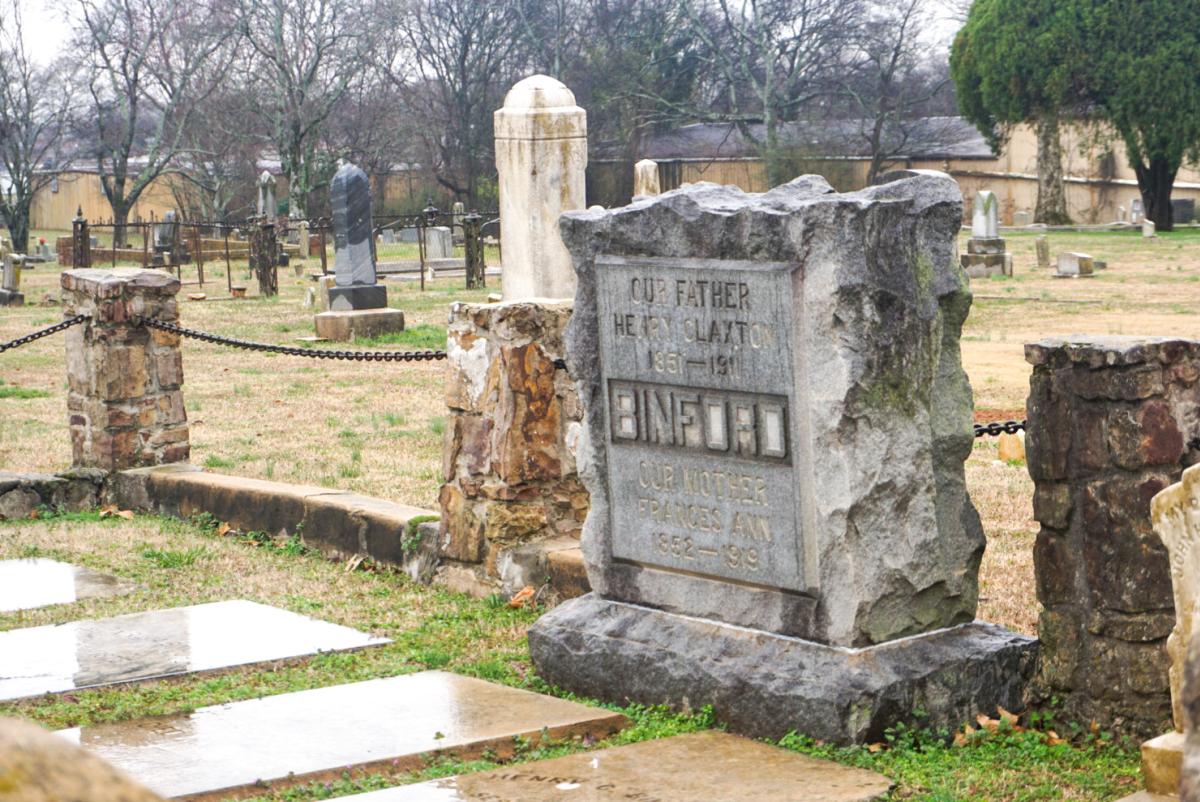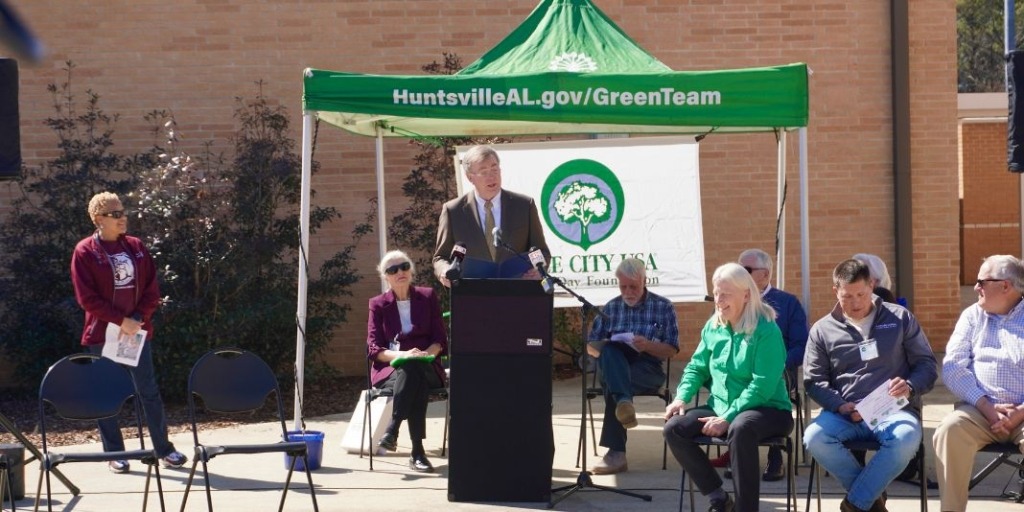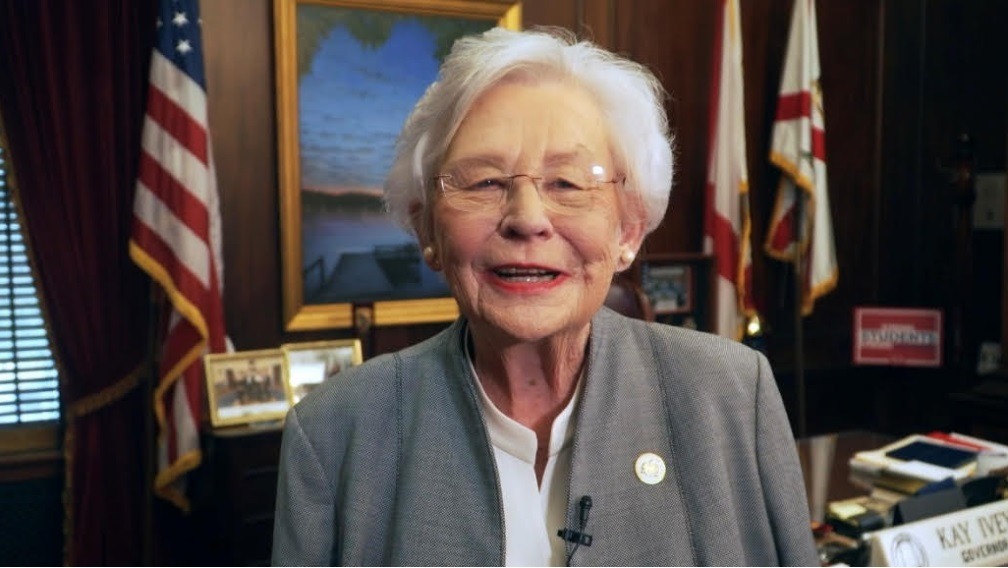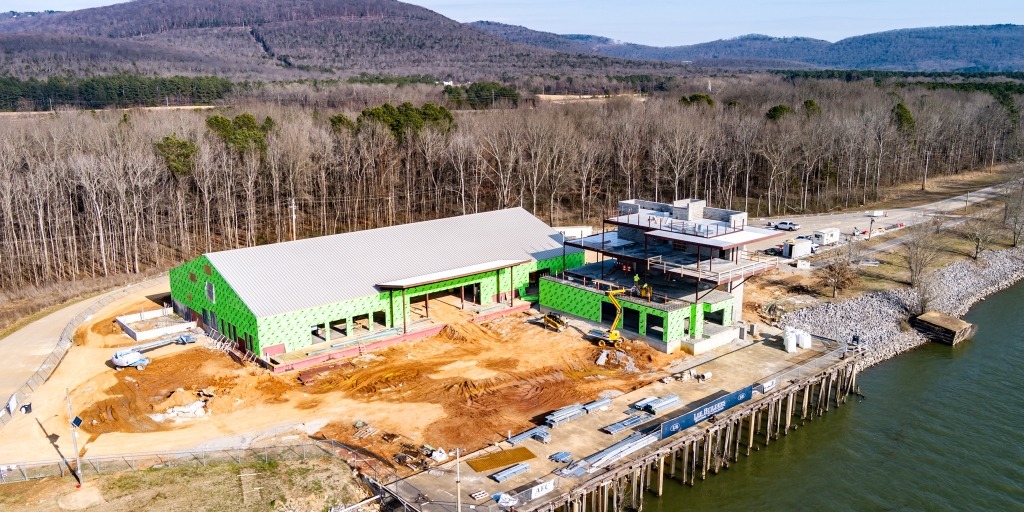HUNTSVILLE – Nearly hidden to passersby, with one corner practically underneath a part of I-565 where homeless camps have popped at times near downtown, a cemetery that was founded in the second half of the 19th century was recently in the news.
Glenwood Cemetery, Huntsville’s oldest surviving cemetery for Black residents that was founded in 1870, is now listed in the U.S. Park Service’s National Register of Historic Places. Located at 2300 Hall Avenue not far off Holmes Avenue and near Huntsville Fire Department No. 1, it’s the city’s 75th resource to be added to the federal registry.
The nomination was prepared by Dr. Caroline Swope, a local historic preservation specialist, and supported by retired educator and historian Ollye Conley.
“We are thrilled to have Glenwood listed to the National Register of Historic Places,” Huntsville Preservation Planner Katie Stamps said. “The bar for listing cemeteries to the National Register is extremely high. It is a testament to the historical significance of Glenwood and the hard work of people like Mrs. Conley and Dr. Swope that this sacred place is now designated at the federal level.”
Glenwood was established in 1870 on 10 acres of land between Holmes and Clinton avenues. It is the resting place of people born slaves, emancipated, and who lived out the remainder of their days in the “separate-but-equal” South.
Notable people buried there include Henry Binford, an educator; Burgess Scruggs, a physician; and Charles Hendley Jr., the editor of The Huntsville Gazette.
Donna Castellano, executive director of the Huntsville Historic Foundation, wrote in 2017 how the cemetery was the final resting place for “people of great accomplishment, including doctors, educators, clergymen, political leaders and artisans. Tombstones identify those who fought in America’s war, men who risked their lives in defense of a nation that denied their civil rights.”
As for being added to the national registry, she said Glenwood is getting its rightful recognition.
“The people buried here came from all walks of life; they were mothers, fathers, brothers, sisters, husbands and wives,” Castellano said. “By preserving Glenwood, we pay our respects to those buried here and their history.”
The roots of Glenwood go back to Georgia Cemetery, founded in 1818 on two acres of land Leroy Pope sold to the city. Huntsville Hospital’s parking lot now sits on the site. A burial ground for Black residents was moved to what is now Glenwood.
According to Castellano’s 2017 piece, there are no records of how many graves were relocated to Glenwood. Records weren’t kept at the new cemetery until the 1950s.
With that as a stumbling block, Joy McKee, caretaker of Huntsville cemeteries until she retired, and her staff coordinated a project that identified, located and cataloged all the graves in Glenwood. Many of the graves were unmarked.
Those efforts led to the listing of Glenwood to Alabama’s Register of Historic Cemeteries.
For more about Glenwood, including a project of the historic place by Conley and her students at the Academy for Space and Foreign Language, visit https://cityblog.huntsvilleal.gov/paying-respects-glenwood-cemetery/.
For information on the national registry, go to https://www.nps.gov/subjects/nationalregister/index.htm.











